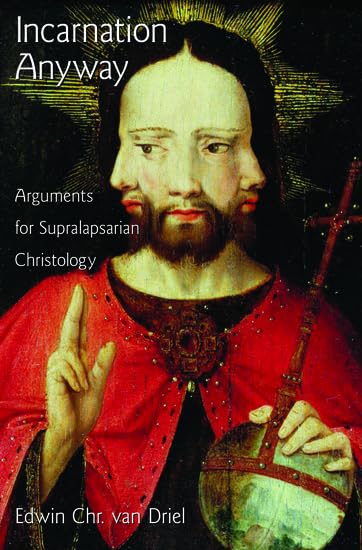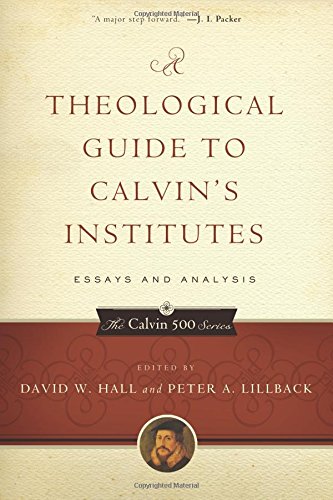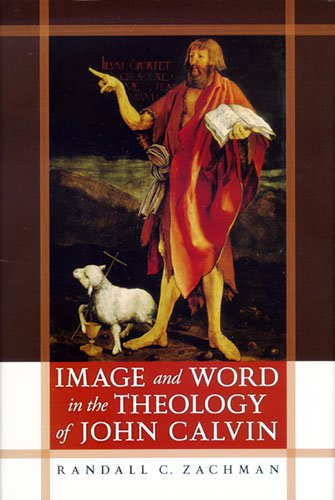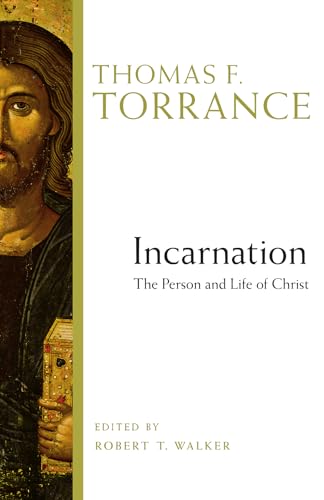Incarnation Anyway: Arguments for Supralapsarian Christology
Written by Edwin Chr. van Driel Reviewed By Mark McDowellEdwin van Driel seems to have appeared almost out of nowhere. In his essay treating Bruce McCormack’s rather controversial thesis regarding election (“Karl Barth on the Eternal Existence of Jesus Christ,” SJT 60 [2007]: 45–61), this relatively young and unknown theologian has announced his place in the sphere of systematic and dogmatic theology with gusto. While that particular essay was part of an ongoing conversation, in Incarnation Anyway it is given more space to further develop his own position. Yet this is not just a reactionary piece of work but one that is entirely constructive.
At its core, what drives van Driel’s thesis is this question: Did Christ become incarnate solely to deal with humanity’s sin, or were there other motives? As he frames the issues, the author employs the terminology traditionally found in the doctrine of election. So van Driel refers to the view that Christ took on flesh to deal with humanity’s sin problem as an instance of infralapsarian Christology, since the divine will to become incarnate logically follows (infra, after) the divine will to allow sin (lapsus, fall). Within the same family is the view which holds that the incarnation involved more than Christ’s taking on flesh to reconcile sinful humanity. This view can be understood as an instance of supralapsarian Christology. Accordingly, the divine will to become incarnate logically precedes (supra, before) the divine will to allow sin.
The author examines three proposals of supralapsarian Christology in the thought of Friedrich Schleiermacher, Isaak Dorner, and Karl Barth. While each profile is located within the broader family of this kind of Christology, there are enough substantive differences to warrant a separate analysis of each. According to van Driel, Schleiermacher situates the incarnation firmly in God’s relating to what is not God in redemption, Dorner situates the incarnation in God’s relating to what is not God in creation, and Barth situates the incarnation in eschatological consummation.
Following this, a constructive proposal is put forward that begins by way of response to the following question: ‘If God becomes human only to take care of the sin problem, why does the incarnation continue once atonement is made, and why does it give us so much more than what sin made us lose?’ (p. 148). The incarnation, therefore, cannot fully be understood or appreciated if it stands under the aegis of an infralapsarian model and finds itself, ‘explained as a divine emergency measure triggered by human sin’ (p. 148). If the doctrine of incarnation is to be explained along these lines, that is, if the incarnation can be understood only in its relation to sin, then, by its very nature, the incarnation requires sin. According to van Driel, we should not ‘take refuge in a doctrine of sin to beef up incarnation’s meaning. We do not need the bad to enjoy Christ’ (p. 131).
The author prefers to structure discussion about the incarnation according to the eschaton. If Christ came only to reconcile God and humanity, ‘to a restoration of the life of the proton, the life of original creation’ (p. 148), then why does the incarnation continue after atonement has been made? If incarnation means more than dealing with sin, though not less, then the goal of Christ’s coming is not primarily to restore what was forfeited in Eden. ‘In Christ we gain more than we lost in Adam’ (p. 151).
What follows is an understanding of incarnation logically situated after election, after creation, and before consummation, and, importantly, it is an understanding not motivated by a view to the fall. God chooses to create a world inhabited by humans so that both parties might enjoy friendship and fellowship together. The incarnation is seen as the evidence of God’s fullest expression of friendship whereby in Christ we see the face of the Father (John 14:9), and at the end of time we are welcomed into a relation of ‘heightened intimacy’ with God (p. 152).
The Gospel records a picture of Christ existing in bodily form even between his resurrection and ascension. This is important for van Driel because it indicates that the intimacy we shall enjoy before God will include sensory perception by bodily beings rather than a purely intellectual cognition (p. 156). Christ assumed flesh and ascended to heaven, and in so doing he led the way of victory so that we might enjoy the presence of God as bodily beings. The beatific vision, the vision of God enjoyed in the consummation, implies that we will enjoy God not only with our minds, but ‘full enjoyment of God implies that we will be able to see God, hear God, embrace God—but this can happen only if God is incarnate, in the flesh’ (p. 163). This is the reason for which we were created so therefore, even apart from sin, the incarnation was always intended for humanity and, as such, is supralapsarian in character.
Within the field of Christology, Edwin van Driel’s proposal will not only be difficult to avoid, but any attempt to do so would be a lost opportunity to follow the lead of an experienced guide across the complex and entangled landscape of Western Christology. Not only does the author engage the thought of such notable figures like Schleiermacher and Barth, van Driel also visits the Christology of the generally overlooked Isaak Dorner.
Readers will quickly find that the mode of theology practised by the author is at once informed by a conversation within the Western tradition while also carried along by a rigorous conceptual analysis of the doctrine. The reader, however, will not find the argument overwhelming as van Driel keeps things clear and well sign-posted. Overall, Incarnation Anyway appears as one of many books that has recently been published on the subject, though it will quickly find itself as one of the very first to be consulted.
Mark McDowell
King’s College
Aberdeen, Scotland, UK
Other Articles in this Issue
Why are we talking about preaching with power? Because of what Christianity is...
In the mid-twentieth century, one could readily find informed Protestant observers acknowledging the Calvinist tradition’s major missionary contribution...
The summer of 2007 was the wettest in Britain since records began, registering over twice the usual amount of rainfall between May and July...
How Far Beyond Chicago? Assessing Recent Attempts to Reframe the Inerrancy Debate
by Jason S. SextonThe doctrine of inerrancy has been a watershed issue among evangelicals in the West, perhaps now more evident than ever...
Quite apart from commentaries and hermeneutical textbooks, books on the Bible—its nature and ultimately its authority—have been appearing with daunting frequency of late






